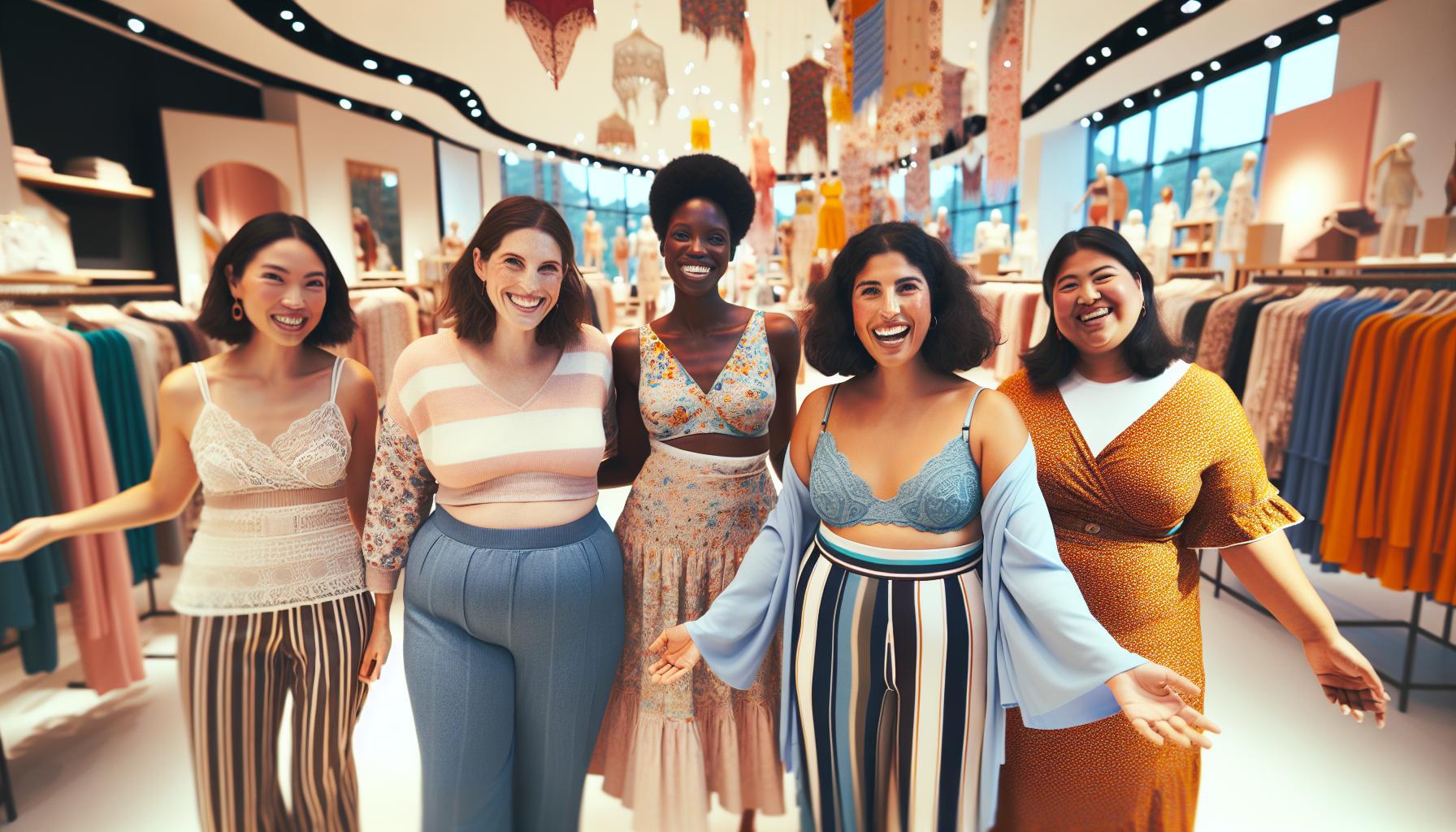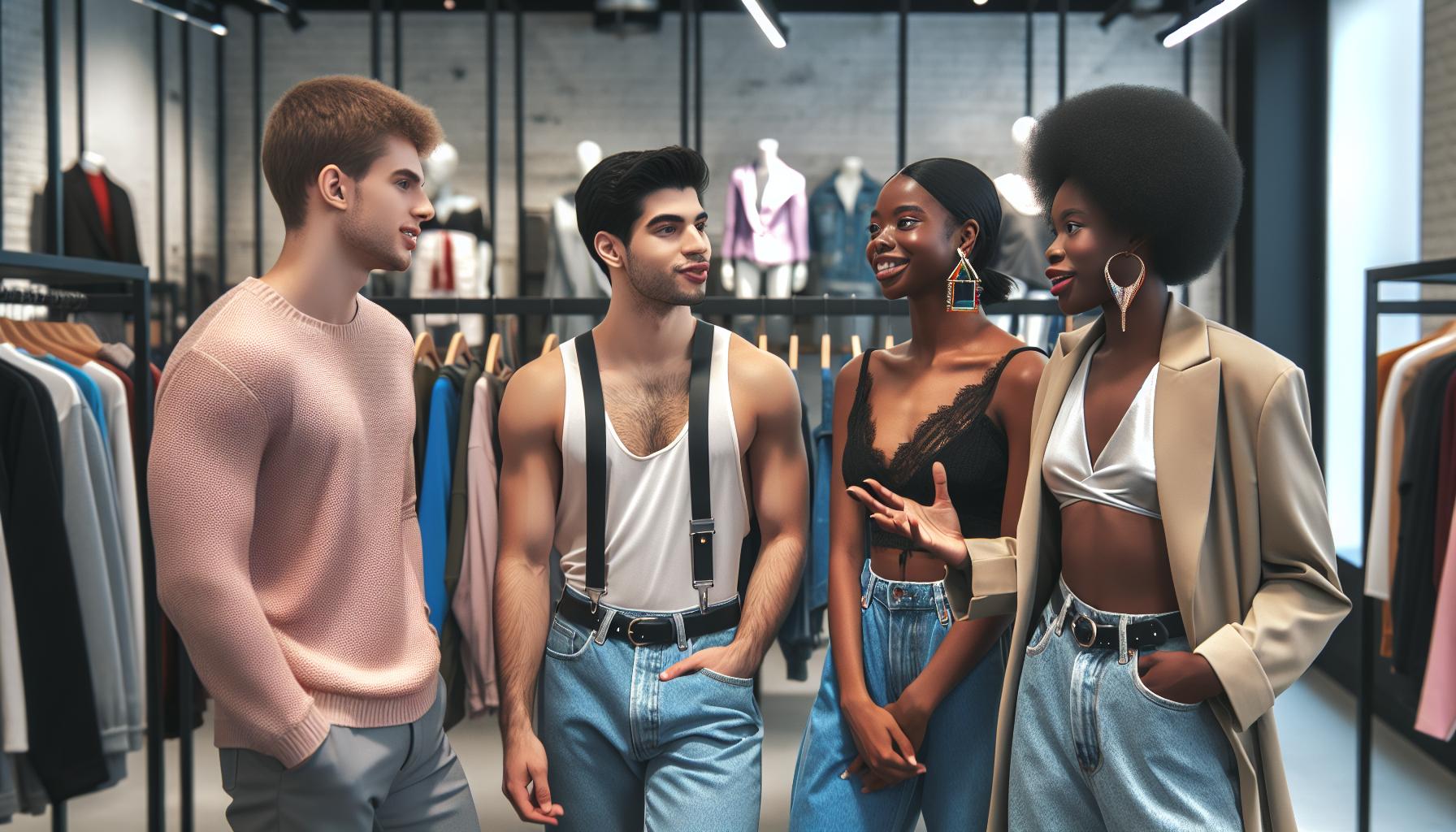The fashion world is buzzing with discussions about sustainability and ethical practices, and Skims has emerged as a focal point in this conversation. Founded by Kim Kardashian, Skims offers a range of body-positive shapewear and loungewear that promises inclusivity and comfort. But as I dive deeper into its production practices and business model, I can’t help but wonder: is Skims really just another player in the fast fashion game?
Fast fashion is often criticized for its rapid production cycles and environmental impact, raising questions about consumerism and ethical sourcing. As I explore Skims, I aim to uncover whether its approach aligns with the fast fashion label or if it sets itself apart by promoting a more sustainable ethos. Join me as I unravel the complexities behind Skims and its role in today’s fashion landscape.
Key Takeaways
- Inclusivity Focus: Skims emphasizes body positivity with a wide range of sizes from XXS to 5X, filling a gap in the shapewear market for diverse body types.
- Sustainability Practices: The brand has made strides in eco-friendliness by incorporating recycled materials in some products, yet its rapid production raises concerns about overall sustainability.
- Fast Fashion Characteristics: Skims exhibits elements of fast fashion with its quick production cycles and trend-driven inventory, prompting questions about ethical consumption and environmental impact.
- Consumer Skepticism: While many consumers appreciate Skims for its inclusivity, there’s a significant level of skepticism regarding the brand’s sustainability claims and marketing strategies that promote rapid consumption.
- Comparison to Other Brands: Skims stands out by blending affordability with quality, setting itself apart from traditional budget brands while reflecting some luxury brand characteristics in its product offerings.
Is Skims Fast Fashion
Skims, founded by Kim Kardashian in 2019, offers a range of body-positive shapewear, loungewear, and underwear designed to cater to diverse body types. The brand emphasizes inclusivity, available in sizes from XXS to 5X, addressing a gap in the market for sizes that traditional retailers often overlook.
Skims markets itself as a solution to conventional shapewear’s limitations, focusing on comfort and support. The product line includes bodysuits, bras, shorts, and leggings, designed for versatility and everyday wear. Fabrics used feature soft blends that prioritize comfort while providing shape-enhancing qualities.
Despite being positioned as a contemporary brand, I find it essential to evaluate Skims’s production methods and sourcing materials. The brand has made strides in sustainability, employing eco-friendly practices such as using recycled materials in some offerings. Yet, its rapid production pace raises questions about whether Skims fully aligns with ethical fashion principles or enters the fast fashion space with fleeting trends.
Skims utilizes strategic marketing to promote its collections, leaning heavily on social media and influencer partnerships. This approach not only generates buzz but also aligns with consumer trends toward authenticity and relatability. By tapping into popular culture and its founder’s celebrity status, Skims solidified its presence in the competitive fashion landscape.
Overall, Skims presents a multifaceted case. Its commitment to body positivity and size inclusivity contrasts with typical fast fashion brands, but its production practices warrant closer examination to determine its true impact on sustainability and ethical consumption.
Fast Fashion Defined

Fast fashion refers to a retail strategy that emphasizes rapid production and distribution of inexpensive clothing. This approach allows brands to quickly bring the latest trends from the runway to consumers at accessible price points.
Characteristics of Fast Fashion
- Rapid Production: Fast fashion brands produce new styles frequently, releasing collections weekly or even daily.
- Low Costs: Affordability drives fast fashion, with lower-quality materials reducing manufacturing expenses.
- Trend Responsiveness: Fast fashion retailers quickly adapt to emerging trends, often replicating designs seen on runways or celebrities.
- Mass Production: Large quantities of products are manufactured to meet consumer demand and ensure availability.
- Disposable Nature: Clothing is often designed for short-term use, encouraging consumers to discard items for newer trends.
- Increased Waste: Fast fashion contributes significantly to textile waste, with millions of tons discarded annually.
- Environmental Concerns: The production process involves environmental degradation, including excessive water use and chemical pollution.
- Erosion of Quality: Higher volume and lower costs often mean reduced quality, leading to garments that wear out quickly.
- Labor Practices: Fast fashion frequently relies on low-wage labor in developing countries, raising ethical concerns about working conditions.
- Consumer Behavior: The rapid turnover in styles cultivates a culture of overconsumption, pressuring consumers to purchase more frequently.
Analysis of Skims

Skims represents a complex intersection of fashion, sustainability, and ethical practices. Evaluating its brand philosophy and production practices sheds light on its positioning within the fast fashion debate.
Brand Philosophy and Ethics
Skims promotes inclusivity and body positivity, aligning with a growing consumer demand for diversity in fashion. The brand offers an extensive range of sizes from XXS to 5X, addressing gaps within traditional shapewear markets. Ethically, Skims emphasizes the importance of comfort and support, creating products that enhance the wearer’s confidence. However, its rapid growth and reliance on social media for marketing raise questions about potential impacts on ethical standards, particularly regarding consumerism and environmental responsibility.
Production Practices
Skims adopts eco-friendly practices in some product lines, utilizing recycled materials to lower its environmental footprint. However, the brand’s quick turnaround times and trend-driven inventory reflect characteristics typical of fast fashion, such as mass production and disposable culture. This pace generates concerns about the sustainability of its practices, especially when weighed against the significant textile waste and labor issues prevalent in the broader fast fashion landscape. Continuous monitoring of Skims’ production choices is essential to evaluate its true commitment to ethical fashion.
Consumer Perspectives

Consumer perspectives on Skims reflect a mix of enthusiasm and skepticism, especially in relation to fast fashion and sustainability. Many individuals weigh the brand’s claims of body positivity against concerns about its production practices.
Skepticism Towards Fast Fashion
Skepticism towards fast fashion remains prevalent among environmentally conscious consumers. Many individuals question the long-term impacts of brands that prioritize rapid production cycles over sustainability. Concerns often center on environmental degradation, labor practices, and the culture of disposable clothing. This skepticism extends to Skims, as critics highlight the brand’s quick turnaround and trend-based inventory, which resemble traditional fast fashion models. Even with sustainable practices in some product lines, many consumers remain wary of the brand’s overall commitment to ethical standards.
Skims’ Reception Among Consumers
Skims’ reception among consumers includes a mix of appreciation and scrutiny. Many shoppers celebrate its inclusive sizing and focus on body positivity, noting the brand’s effort to cater to diverse body types. However, some consumers express discomfort with its marketing strategies, which often leverage social media influencers to promote a rapid consumption mindset. This duality reflects a broader trend; while Skims attracts loyal customers who value its products, others challenge the brand’s sustainability claims, advocating for more transparency regarding its production processes.
Comparison to Other Brands
Skims occupies a unique space in the fashion industry, positioned between budget and luxury brands. Evaluating its standing requires a closer look at how it contrasts with both categories.
Budget Brands
Budget brands focus on delivering trendy clothing at low prices, often sacrificing quality for quantity. Brands like H&M and Forever 21 exemplify this model, churning out vast quantities of low-cost apparel designed for rapid turnover. Skims, while also priced affordably, emphasizes quality and comfort. Its premium materials and thoughtful designs cater to diverse body types, which sets it apart. Skims offers products priced between $28 and $98, reflecting a commitment to higher-quality fabrics compared to typical budget offerings. Even with a similar rapid production pace, Skims maintains a higher standard of quality, reducing the likelihood of items being discarded after minimal use.
Luxury Brands
Luxury brands, such as SKIMS’ competitor, Spanx, prioritize craftsmanship, sustainability, and exclusivity. Products often feature higher price points, reflecting their commitment to premium materials and ethical manufacturing processes. Spanx’s products typically range from $68 to $128, showcasing unique designs and focusing on long-lasting quality. In contrast, Skims, while positioned as a premium brand, reflects some luxury characteristics through its diverse size offerings and innovative materials. Although Skims employs some eco-friendly practices, it also mirrors fast fashion’s rapid production model, which raises questions about sustainability in comparison to true luxury brands that emphasize slower, more mindful production cycles.
By comparing Skims to both budget and luxury brands, I can assess its identity and commitment to sustainability within the broader landscape of the fashion industry.
Fast Fashion
is skims fast fashion? Skims occupies a unique space in the fashion landscape that challenges traditional definitions of fast fashion. While the brand promotes body positivity and inclusivity through its diverse sizing and quality materials, its rapid production pace raises essential questions about sustainability. I find it crucial for consumers to remain informed about these complexities.
As I navigate my own choices in fashion, I realize the importance of supporting brands that align with my values. Skims’ commitment to eco-friendly practices is commendable, but ongoing scrutiny of its production methods is necessary. Ultimately, it’s up to us as consumers to demand transparency and hold brands accountable for their impact on the environment and society.



